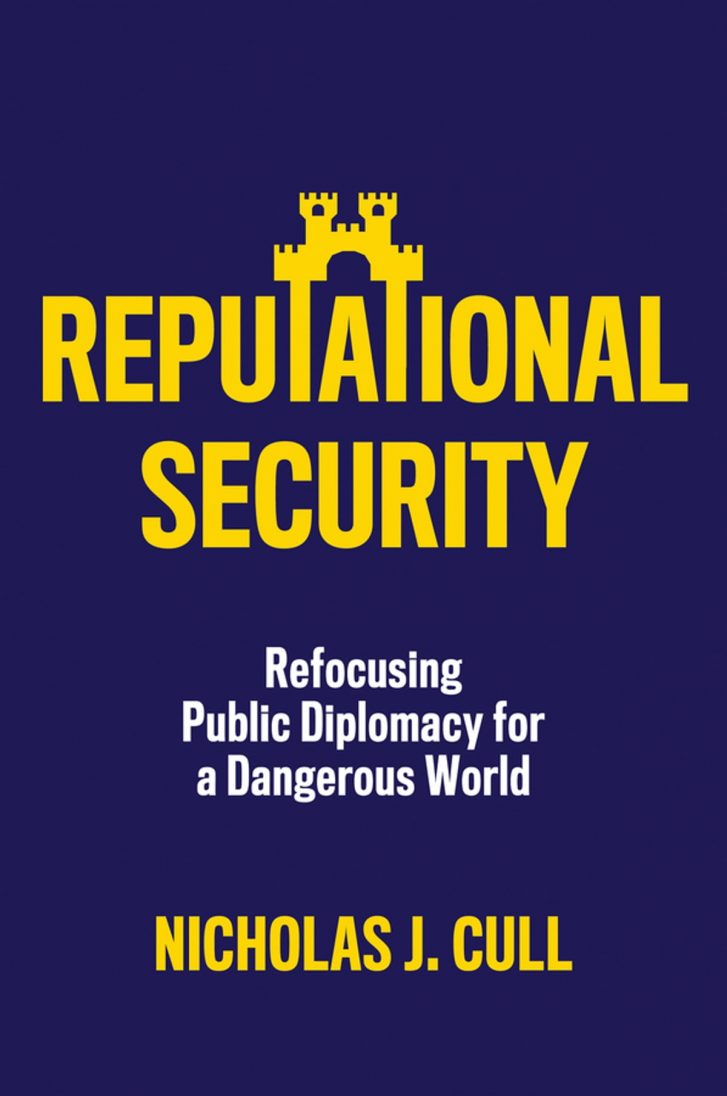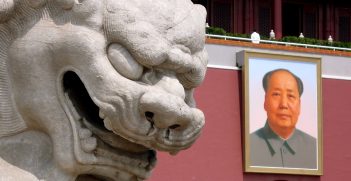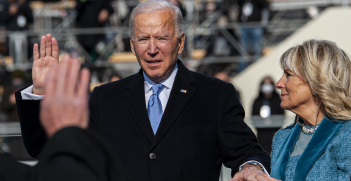Book Review: Reputational Security

Nicholas J. Cull highlights the importance of proactively preserving a nation’s public image. Debunking negative propaganda in retrospect might not be enough.
Commonly held assumptions about “attraction” and its relationship to the application of “soft power” in public policy are problematic. As Nicholas J. Cull writes, there is a mismatch between the way practitioners of public diplomacy understand soft power and his own experience of the world. The mismatch applies more widely than just to diplomats. In this troubling era of myriad versions of “truth” and AI-enabled realities, there is scant room for arbitrary soft and hard power demarcations.
Cull is a British-born historian and professor at the University of Southern California’s Annenberg School of Communication and Journalism. He has taught, advised government authorities, and written extensively on public diplomacy, propaganda, media, and international communication (in the interest of full disclosure, in 2021 Professor Cull examined my doctoral thesis on the dynamic power of international broadcasting, a work later adapted for publication). In the twenty-first century, he argues, the boundaries of security have shifted: “Governments have to get used to a world in which reputation is part of security and stands as an asset to be protected and a target to be assailed as never before.” With an inferred eye on partisan actors – not least the home-grown political class, one supposes – he warns that strategic adversaries will not hesitate to exploit examples of hypocrisy and double standards. The communication platforms of other nations provide the terrains on which vital struggles will be fought.
In Reputational Security, Cull reframes consideration of the way a nation communicates its place in a hazardous world and its engagement in a weaponised information space. He proposes that, as the world veers away from collaboration and sinks deeper into the mire of conflict, an agenda for reputational security needs to be broader than that generally associated with soft power. It is intended for the “high ground of the global imagination” while calling for robust self-appraisal and responsiveness – walking the talk in this era of great power rivalry and disruption.
His agenda in Reputational Security includes three broad elements that warrant note: the contribution that reputation and image make to security as the core business of statecraft rather than as a “soft” or optional add-on; the universal relevance of this concept, exemplifying what might be called a whole culture in action; and the need to meet the threat of weaponised information with the equivalent of an arms control process toward eventual information disarmament. Conceiving of the information space expansively, he draws an example from the Cold War history of US-Soviet rapprochement to assert that, when something has been weaponised, it has the potential to be controlled through negotiation and regulation.
From an Australian perspective, Cull’s agenda significantly frames the information space as a larger and more demanding strategic arena than local policymakers have appeared to comprehend. It requires deep contemplation and big game responses. In the language of current Australian policy rhetoric, the pursuit of reputational security requires “all the tools of statecraft” to be deployed. The big question is how best to mobilise disparate elements of democracy as a whole culture in action. It is a question that, for example, the Australia-Pacific Development, Diplomacy & Defence Dialogue (AP4D) has been addressing recently.
Overall, Cull presents a more forward leaning and realistic stance than reliance on “light on the hill” assumptions about the affective power of Western liberalism. His recognition that a nation’s shortcomings – whether material, societal, or in the integrity of governance and law – can be “a source of tremendous vulnerability” aligns with the conclusions of his long-time friend and interlocutor, Simon Anholt. Over many years, Anholt’s nation branding and “good country” research programs have found that countries are judged more by what they do than what they say about themselves.
Cull advocates five activity pillars in support of reputational security, resembling some he has identified in earlier works as central to the craft of public diplomacy. They are to listen (actively) and understand how one is perceived in the world; build and defend one’s reputation based on realities that can rally supporters and assist with defence in times of crisis; reform oneself so that conduct more closely aligns with espoused values; make interventions to improve the health of the information environment (the marketplace of ideas); and undermine the reputation of an adversary with forms of counter-propaganda.
Counter-propaganda is a term that serves appropriately but unfashionably. At this “moment of crisis,” as Cull writes, media lie at the heart of the problem of weaponised information. He nominates a range of familiar instrumental means with which to confront challenges of disinformation, misinformation, and information warfare. He highlights the link between journalism and public diplomacy, international broadcasting, media assistance as a form of political capacity building, and various forms of professional development, cultural, and exchange diplomacy. It is the strategic mindset – the organising principle of “reputational security”– that underpins the relevance and coherence of this list.
It is worth reflecting on the value of Cull’s reasoning alongside key insights from international research, affirming the difficulty of correcting misinformation after it has spread, thereby limiting the reach and efficacy of fact-checking practices. Typically, the human brain prefers information that reaches it first, less so a rebuttal. Even labelling a social media post as disinformation, for example, can simply raise its prominence and consolidate its effect on attitudes and behaviour. It has also been demonstrated that social media posts eliciting anger and outrage tend to reach a much larger audience than messages of joy or sadness – a phenomenon amplified in this highly polarised era within and among nations. The imperative is to get ahead of hostile messaging and shape the information space.
In current parlance, one must try to inoculate communities against the effect of weaponised information and to “pre-bunk” damaging narratives rather than striving to debunk them after the event. One example Cull cites of a nation shaping the information space is Britain’s multi-pronged campaign to strengthen its reputation and profile in the United States during World War Two. It opened the sentimental space and generated the political capital that allowed President Franklin Roosevelt to extend American assistance to Winston Churchill’s war effort.
Returning to the intrinsic relationship between domestic and international perceptions in a porous world, Cull stresses the need to defend the health of an actor’s most positive features. For a country like Britain, he argues, educational institutions, the arts, and broadcasting sectors are vital parts of its international image. Accordingly: “Cuts to their funding and limits on their creativity deserve the same reflex of alarm as that which usually greets news of the amalgamation of a storied regiment or scrapping of an aircraft carrier in the Times or Daily Telegraph.”
Geoff Heriot is a consultant on media and governance, and a former corporate and editorial executive with the ABC.
A review of Dr Geoff Heriot’s book, International Broadcasting and its Contested Role in Australian Statecraft: Middle Power, Smart Power, appeared in The Reading Room on 30 January 2024.
This review is published under a Creative Commons License and may be republished with attribution.





